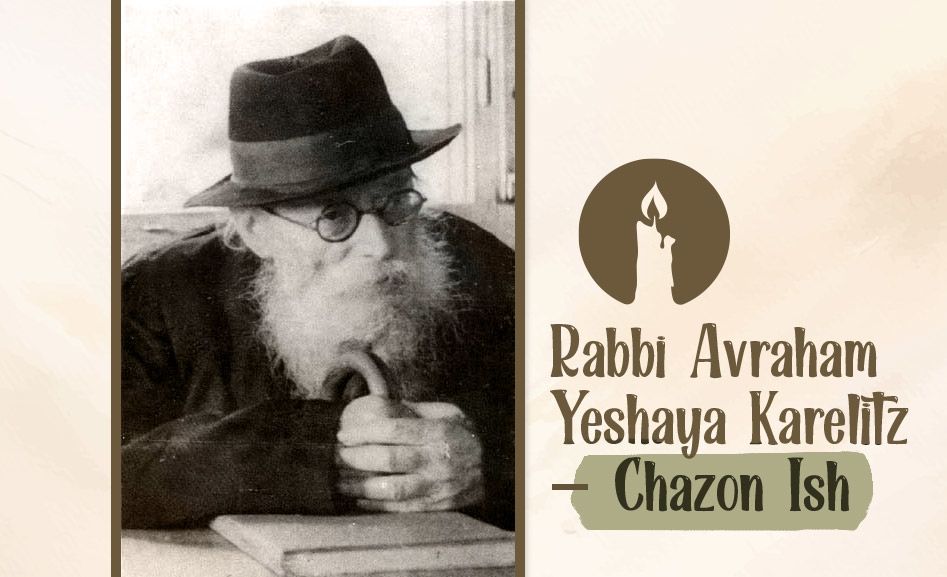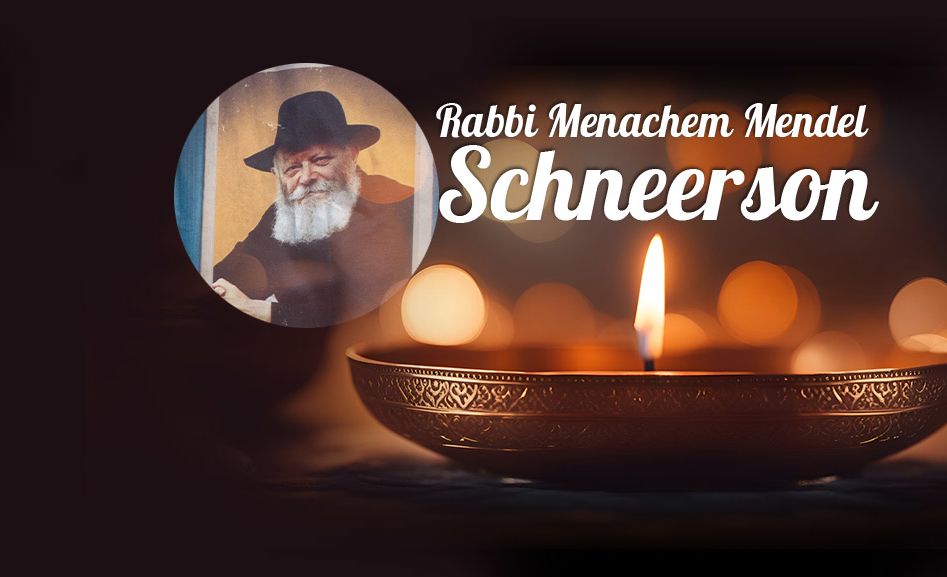
Rabbi Chaim Berlin: Eyes of a Dove
What is the beauty after the sin? But this incident elucidated their intention to me. The answer lies in the final words, 'your eyes are...'

What is the beauty after the sin? But this incident elucidated their intention to me. The answer lies in the final words, 'your eyes are those of doves."
Rabbi Chaim Berlin, the head of Moscow's rabbinical court, lived in Jerusalem in his old age. He would read the Torah in his shul every Shabbos very beautifully and very carefully. Many people in Jerusalem came to daven in his shul just to hear him.
On Shabbos during Pesach, many people streamed into his shul to hear him read Song of Songs, which he did with fervor and an outpouring of love. In particular when he reached the verse, "Behold you are beautiful my beloved, behold you are beautiful, your eyes are those of doves," he would read with great excitement and with tears…
Rabbi Aryeh Levine, as a close student, decided one year to ask his rebbi why, when he reached this verse every year, he would break down in tears. Doesn't this verse describe so beautifully the love that exists between God and the Jewish people?
"Let me tell you the reason," answered Rabbi Chaim. "Once when I was a rabbi in Moscow, a Jew came to me and asked to speak with me privately. I thought, who knows what kind of trouble this Jew is in, to the point that he is embarrassed to speak in front of strangers. We went into a side room, and I was surprised to hear that his 'secret' was the announcement that — mazel tov — his wife had just given birth to a baby boy. He had come to invite me to perform the bris. (Rabbi Chaim Berlin was known as an expert mohel.)
"I asked my guest what was the reason for secrecy in the matter; after all, every Jewish boy has a bris. What then is there to hide?
"'Your honor should know,' he replied, 'that I live in an entirely non-Jewish area, and none of my neighbors or acquaintances know that I am a Jew. I own a large warehouse of Christian religious articles, and of course if it were to become known that I am a Jew, I would lose my comfortable income, and there might be danger to my life. Therefore, while I'm inviting you to give my son a bris, I ask for advice as to how to arrange the bris so that no one will be aware of what is happening.'
"Of course, in such a situation there was no room to think of fulfilling the mitzvah in an exemplary way, with a minyan and festive meal, as is the Jewish custom, and therefore I told him that he should be prepared to be the sandek (to hold the boy on his knees), and then we would be able to carry out the bris by ourselves.
"'No, I won't be able to do that, Rabbi,' replied this Jew in fright. 'I have a soft heart and I can't bear to look at anyone being hurt. How then will I be able to watch my young son having a bris? Perhaps my hands will shake and I will, God forbid, drop the baby from my lap.'
"I asked him for a few more details about his situation, where he lived and the like, and then I made the following suggestion: 'Firstly, on the day of the bris, send away all the non-Jewish servants that are in your house, so they won't see what you are doing there. Secondly, since there is in the city a Jewish doctor, a famous surgeon, whose services are requested by many non-Jews as well, you should ask him to come on the eighth day to be present at the time of the bris, and you should tell your neighbors that a physical blemish was found in the baby and he needs a minor operation. And I will come with the doctor at the appointed time. The doctor will be the sandek, and I the mohel. And the doctor will be able to come afterwards a few times to your house to oversee the healing of the bris, and everything will go peacefully.'
"On the appointed day, the Jew came to lead me to his house, together with the famous surgeon. We passed through streets and areas that in all the years I had lived in Moscow, I had never had the opportunity to pass through, because never did a Jewish foot tread there. We reached his house, which was like a nobleman's, and there was not a single sign that this was a Jewish home. On the contrary, it had many types of idols and many Christian religious objects. We arranged the bris according to Jewish law, with the doctor serving as the sandek, and I the mohel. When we parted I asked him to come to me on the third day after the bris in order to tell me how the baby was doing.
"On the third day this Jew came to my house, and since he suspected that I had invited him so that he would pay me for my services, he offered me a bill of 20 rubles. Of course I refused to accept it. He thought that I was not satisfied with the sum he was offering, and therefore he added to it until I was able to convince him that I simply refused to accept reward for my efforts on behalf of such a great mitzvah. However I did disclose to him my real intention in inviting him to come to me, which was that I had a great desire to know what had brought him to fulfill the mitzvah of bris milah with such self-sacrifice, despite the fact that after speaking with him and visiting his home I saw that he had no connection whatsoever with Judaism.
"Upon hearing these words, his eyes filled with tears. With a bowed head he said: 'I know, Rabbi, that I have distanced myself from the Source. Sometimes my heart is broken, but with my situation I do not know whether I will be able to do a full teshuva (repentance)…' And here he started weeping uncontrollably.
After he calmed down somewhat, he continued. 'I think that my tender son, who has been given the bris, will be even more distant than I am from Judaism, for at least in my childhood I lived like a Jew. But my son won't grow up with any sign of Jewish life. Even so, it is possible that this son, when he grows up, will become acquainted with Jewish life, and perhaps the spark will ignite and he'll want to be a Jew. It is for this reason that I don't want to block the way for him to return to our source. That is why I made such a great effort to give him a bris, so that the road will be open to him and he'll be able to return easily to his source'."
When Rabbi Chaim Berlin reached the end of the story, he was moved to tears once again and added: "This incident made clear to me the saying of the Sages on the verse above: 'Behold, you are beautiful my beloved, behold you are beautiful, your eyes are those of doves,' which I had difficulty understanding throughout my life.
"Our Sages explain the repetition of words, 'Behold, you are beautiful' in the following way: Behold you are beautiful — before the sin, and behold you are beautiful – after the sin. And the matter is not clear at all; what is the beauty after the sin? But this incident elucidated their intention to me. The answer lies in the final words, 'your eyes are those of doves."
"One of the unique tendencies of a dove is that she doesn't distance herself so far from her nest that she will not know her way back. "This is what our Sages mean by: 'Behold, you are beautiful – after the sin.' A Jew, despite the fact that he sinned and distanced himself from his source, still turns his head backwards and tries not to lose his way entirely back to his nest. And if not he, then at least his offspring will be able to return to Judaism. And this is the praise of 'your eyes are those of doves’."
(From "BELOVED CHILDREN" – Insights into raising children from the weekly parsha. (Story from Moreshet Avot III p. 62) Feldheim Publishers.)












Tell us what you think!
Thank you for your comment!
It will be published after approval by the Editor.